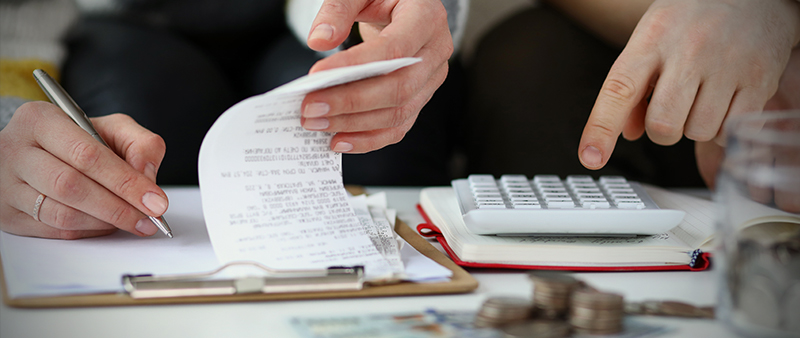
As anyone who lives on their own or with a partner can understand, having a monthly budget in place for your household is imperative for a healthy financial lifestyle. Creating this budget will ensure that your bills will be paid on time, as well as help you assess the funds you have for groceries, prescriptions, or other essentials. It also ensures that you can assess what you have left over after such expenditures, and give you the opportunity to decide how that money is used, whether it’s for a vacation, a bigger purchase, paying off extra debt, or to be put into a savings account.
If you haven’t already created your own monthly budget and are not sure where to start, this might help:
- Account for your income. This is an important first step. Calculate your monthly income – paychecks, Social Security, retirement, pension, alimony, investment income, and child support all fall under this umbrella. Exclude any flexible / unsecured sources of income, such as online sales or freelance work; this can create issues with your budget.
- Assess your regular living expenses. This generally includes bills and other necessary expenditures that you pay on a regular monthly basis. Your rent or mortgage should be at the top of the list; following that should be your utilities, which can fluctuate per month, but you can come up with an average monthly payments by looking at your accounts online. Setting aside a bit of extra money a month to cover higher-than-usual bills is also a benefit in the long run.
- How much do you spend on food every month? Many people who are in charge of grocery shopping for their household can come up with an average amount they spend on groceries every month. Of course, this can fluctuate as well for any number of reasons. Also, if you have a history of going out to eat or ordering takeout, start saving receipts so you can see how much you’re spending per month on those expenditures. Check out mail fliers and coupons online that can help you save money at the cash register.
- Tackle your credit card / loan debt. If you’re making monthly payments on a loan or credit card, take it into account as you create your budget. Payments can fluctuate as well, so it’s a good idea to take your highest monthly payment and calculate that into your budget. Whatever money that is left over can go into savings or other purchases. Maintaining regular on-time monthly payments on your loans or credit cards will help keep your credit score healthy.